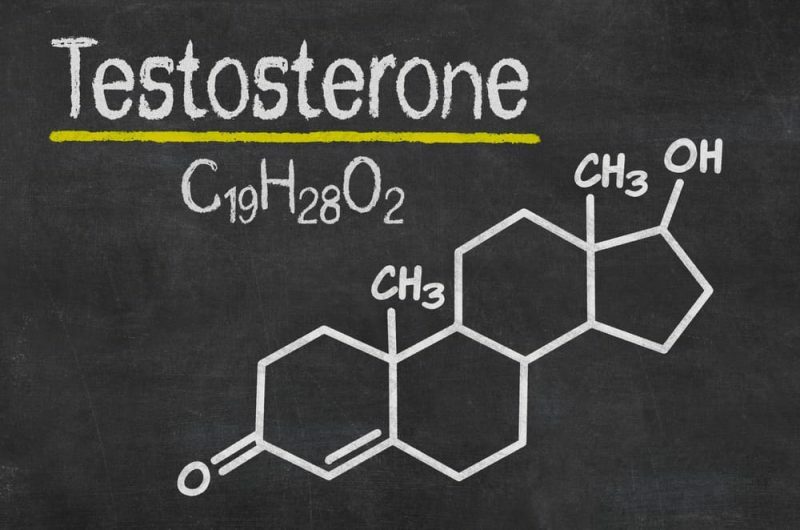20 Examples of Hormones
Miscellanea / / July 04, 2021
The hormones They are essential substances for the normal functioning of the human body and other living beings. They are produced by specific organs known as endocrine glands, such as the pancreas or pituitary gland, and enter the bloodstream. For example: testosterone, insulin, prolactin.
Hormones are in a very low concentration in the blood, however, they regulate very precisely vital functions such as the assimilation of sugars, the fixation of calcium in the bones and gametogenesis.
Hormones can be considered as messenger molecules, which coordinate the functions of different parts of the body. It should be noted that hormones exert their action on cells different from those in which they have been synthesized. Many hormones are protein, others are steroids derivatives of cholesterol.
Hormonal actions can be triggered at different times, some are triggered in a matter of seconds, others require several days to start or even weeks or months. The intensity of numerous cellular chemical functions is governed by hormones.
Among the functions performed by hormones, the following stand out:
Different hormones are listed below and the main mechanisms in which they are involved are indicated.
Examples of hormones

- Testosterone. It is typically the hormone that regulates the development of secondary male sexual characteristics (voice thick, muscle mass, hair), although it is also essential for there to be correct spermatogenesis.
- Insulin. This hormone is manufactured by the pancreas and is essential for regulating the concentration of glucose in the blood. That is why it is closely related to a sadly common disease: diabetes.
- Glucagon It acts in concert with insulin, so it is also essential in the balance of glucose.
- Parathormone. This hormone is produced by the parathyroid gland and is involved in the metabolism of calcium and phosphorus. It is very important for bone health and for the normal functioning of vitamin D.
- Calcitonin It is also very important for bone health, it acts contrary to parathyroid hormone.
- Aldosterone. Regulates the level of sodium and potassium in the blood and urine; it is closely related to the normal functioning of the kidneys. This hormone is produced by the adrenal gland.
- Antidiuretic hormone. It is involved in the reabsorption of molecules of water in the renal tubules, so it is linked to the production of urine. Also called vasopressin, it has a key role in the body's homeostasis.
- Prolactin It is synthesized in the anterior pituitary gland and regulates milk production by the mammary glands. It increases when delivery is approaching and immediately after it.
- Oxytocin This hormone is essential to trigger the uterine contractions that must occur during childbirth, it is produced by the pituitary.
- Thyroxine It is related to the thyroid gland and regulates many physiological processes, including cell metabolism, growth, and development of the nervous system. Different diseases can be caused by alterations in the synthesis of this hormone, the most common are hypothyroidism and hyperthyroidism.
- Progesterone. It is a necessary progestogen for maturation changes to occur in the endometrium that will allow the development of the embryo, therefore, it is essential in pregnancy. It is also important at the entrance to puberty for the development of female sexual organs and is often used as replacement therapy in menopause. It is mainly produced in the ovary.
- Somatotrophin. Also called growth hormone, it is essential for a correct development of the child; activates protein synthesis, increases glucose utilization and also lipolysis. Stimulates the growth of organs in general.
- Follicle stimulating hormone. It is the hormone necessary for the maturation of the ovarian follicles to occur and the menstrual cycle of women, necessary for reproduction, to be completed.
- Luteinizing hormone. It acts in a complementary way to the previous one, stimulates ovulation and initiates the formation of the corpus luteum. Luteinizing hormone is often tested to test for female infertility problems.
- Adrenaline (epinephrine). It is a neurotransmitter that participates in the natural defense reaction against stress, acting in almost all tissues; it is vital in the flight reflex and is used as therapy in various critical situations, including cardiac arrest, asthma attacks and allergic reactions.
- Cortisol It is a glucocorticoid related to the immune system, the metabolism of fats and a process called gluconeogenesis. Its synthesis and release is triggered in stressful situations.
- Melatonin This hormone is related to various physiological events, affects the immune system, aging, cardiovascular disease, changes in sleep / wake rhythms, is even responsible for certain conditions psychiatric. Melatonin is used to combat sleep disorders, among others.
- Estradiol It is involved in the growth of reproductive organs, as part of female sexual development, but it is also present in men. It has a marked effect on bone mass, being part of hormone replacement therapies in postmenopausal women.
- Triiodothyronine. This is a hormone that involves almost all physiological processes (growth and development, temperature body, heart rate, etc.). By stimulating the degradation of carbohydrates and from fats, it activates aerobic metabolism and protein degradation, that is, it increases the general basal metabolism.
- Androstenedione. It is a precursor hormone to other hormones: androsterone and estrogens; it is therefore necessary to maintain reproductive health, both for men and women. Its use as a supplement has been banned because it is considered an anabolic steroid that contributes to increasing muscle mass and physical resistance in athletes.

